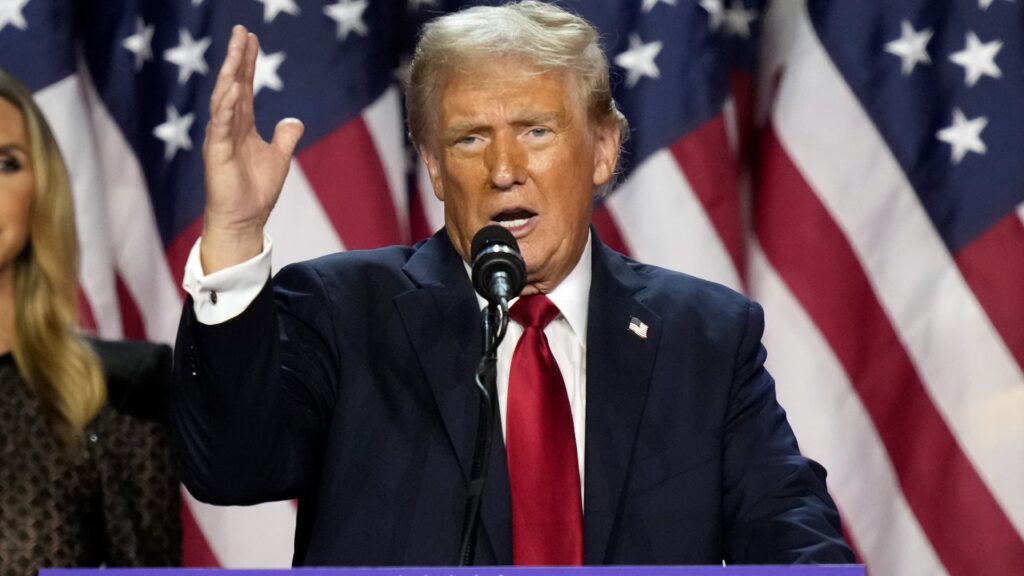
US President Donald Trump has unveiled a series of tariffs targeting America’s three largest trading partners—China, Mexico, and Canada—escalating trade tensions and triggering swift retaliatory measures.
Starting Tuesday, the US will impose a 25% tariff on imports from Canada and Mexico, while an additional 10% tax will apply to Chinese goods. Canadian energy imports face a comparatively lower 10% tariff.
Trade War Escalates
Trump had previously threatened to implement these tariffs unless the three nations addressed concerns over illegal immigration and drug trafficking. In response, both Canada and Mexico have announced plans to impose retaliatory tariffs of their own. The president has signaled his willingness to further escalate the measures if necessary.
Collectively, China, Mexico, and Canada account for over 40% of total US imports.
White House Justification
“Today’s tariff announcement is necessary to hold China, Mexico, and Canada accountable for their promises to halt the flood of poisonous drugs into the United States,” the White House stated in a post on X.
Trump, writing on his Truth Social platform, cited the International Emergency Economic Powers Act (IEEPA) as the basis for his decision, framing it as a response to “the major threat of illegal aliens and deadly drugs killing our Citizens, including fentanyl.”
Retaliatory Measures From Canada and Mexico
Mexico’s President Claudia Sheinbaum pushed back against US claims of an “intolerable alliance” between the Mexican government and drug cartels, calling them “slander.” She emphasized Mexico’s willingness to collaborate on border security and drug control but argued that “problems are not resolved by imposing tariffs, but by talking.”
Sheinbaum has instructed her economy minister to respond with a mix of tariff and non-tariff measures, including a 25% tax on US goods.
Canadian Prime Minister Justin Trudeau echoed Mexico’s opposition, declaring, “We don’t want to be here, we didn’t ask for this, but we will not back down in standing up for Canadians.”
Canada’s countermeasures include a 25% tariff on $155 billion worth of American goods, with $30 billion taking effect immediately and the remainder in 21 days. The affected products range from beer, wine, and bourbon to clothing, household appliances, and lumber.
Trudeau dismissed claims that Canada posed a security threat to the US, pointing out that less than 1% of fentanyl entering the US originates from Canada. To avoid the tariffs, Ottawa had pledged to invest CA$1.3 billion in border security enhancements.
China Vows Legal Action
China strongly condemned the US move, announcing plans to file a lawsuit with the World Trade Organization while implementing countermeasures of its own.
“China plays the central role in the fentanyl crisis,” the White House claimed, alleging that Chinese exports contribute significantly to the spread of the deadly synthetic opioid.
Economic Fallout and Industry Concerns
The trade dispute could drive up consumer prices on everyday goods such as cars, steel, food, and alcohol. Analysts warn that the auto sector may be hit particularly hard, as vehicle parts cross North American borders multiple times before final assembly.
According to TD Economics, the average cost of a US-made car could rise by approximately $3,000. Meanwhile, a report from the Peterson Institute for International Economics suggested that blanket 25% tariffs on Canada and Mexico could slow economic growth and accelerate inflation across all three countries.
US industry groups have also sounded the alarm:
- The National Homebuilders Association warned that tariffs could drive up housing costs.
- Farmers for Free Trade expressed concerns that struggling US farmers would be further burdened.
- The Retail Industry Leaders Association, which includes major brands like Home Depot and Target, remains hopeful that a resolution can be reached.
Ashley Davis, a Republican lobbyist for businesses such as Walmart and Boeing, believes Trump may ease tariffs on Canada and Mexico if he secures concessions on immigration and border security.
“You have to remember—the border and China are the two biggest issues that Americans voted him on in the elections in November. Anything he can do to claim wins on that, I think he’s going to do,” she said.
As the world watches, the trade war is poised to have far-reaching consequences. Whether Trump’s strategy will yield the policy changes he seeks—or backfire by harming American consumers and businesses—remains to be seen.
